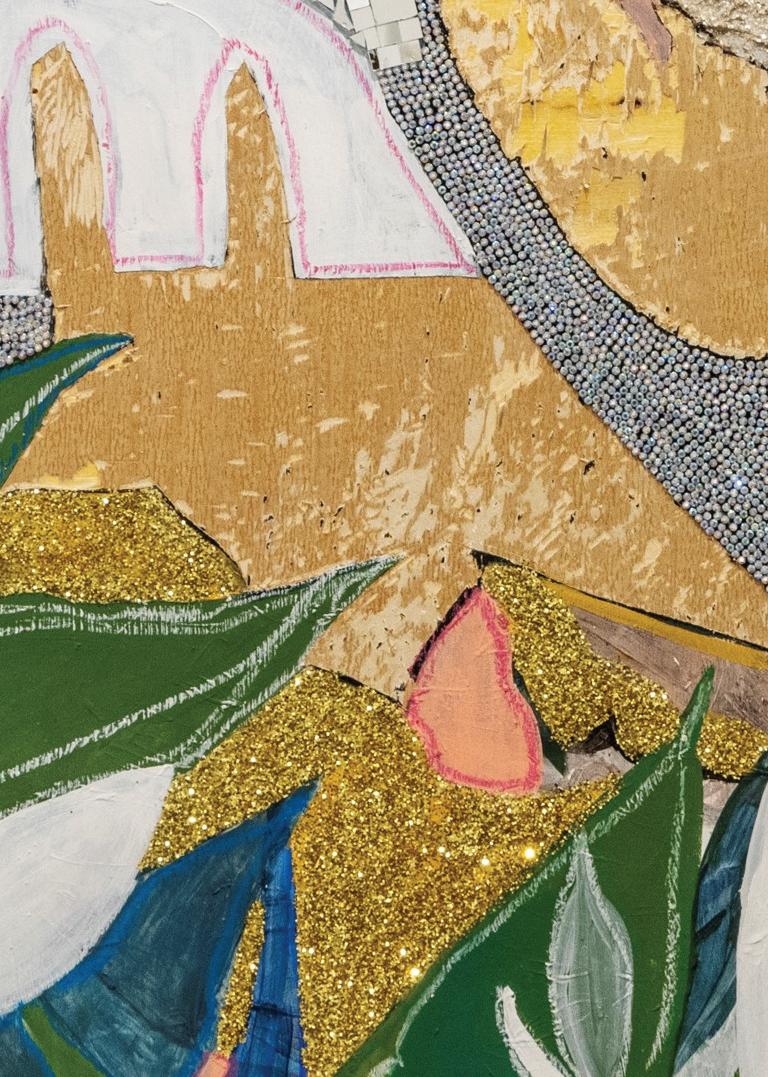
2 minute read
by Makala Scurlock
My Path to Ifa Lucumi
Makala Scurlock
Advertisement
I grew up in the Baptist church where the sick were healed by collective prayers of outstretched hands- where people spoke in tongues, prophesied and "caught the spirit". Ushers dressed in white would form a protective circle around the shaking dancer until finally they lay down, spent from the electric energy that had overtaken their body.
In my youth I was taught that being a good Christian meant living in a way to avoid fire and brimstone in the afterlife. Constantly asking for forgiveness left me with the feeling of being wrong not to mention it leaves little room for self-actualization as I am in perpetual fear of making a grave misstep. The same community that entertained miracles and visions dismissed my questions about deja vu’ and spirits. Though I had made the walk to the altar, confessed my sins and was baptized, in my soul I could feel there was something unaccounted for.
Religious studies classes and distance away from the church allowed me to learn about the ancestors, pouring libation, and ATR’s. I meditated and said “hotep” way too much. I had so much florida water I could’ve started my own botanica. I read books, most notably Flash of the Spirit where I learned about Iwapele (good character) and Eshu. The best thing to come of this exploration was my simple ancestor altar, a candle and water. Meditating at this altar gave me the same grounded sensation I experienced as a child before the human side of religion damaged my natural connection with divinity and my own Ori (Yoruba name for what we understand as bspiritual head or consciousness). I began to lean more into my dreams where I was visited by very distant relatives and deities. I trusted my gut which led to my first step into the life.
There is something unmatched about being in nature though dancing for me is a close contender. I received my warriors ( one of the first steps of initiation in the Lucumi tradition) on a fall day, outside and there was dancing and music- a protective circle. The altar was the grass beneath my feet. Before my ceremony, My Babalawo warned me “you can’t study this”- meaning the lessons aren’t in a book. They are lived and come from communion and trust of your own spirit and guides.
The reunion with my ancestral traditions allowed me to mend the hurt and disappointment I had from my Christian upbringing. Lucumi is like that. You are guided through a path where you forge or acquire the tools to save, refine and become the best version of yourself. In so doing I realized that the essence of our culture still remains by evidence of what I witnessed as a youth. Now, my questions aren’t dismissed. They are guided and answered by my Ori, the Orishas, my elders and nature.









